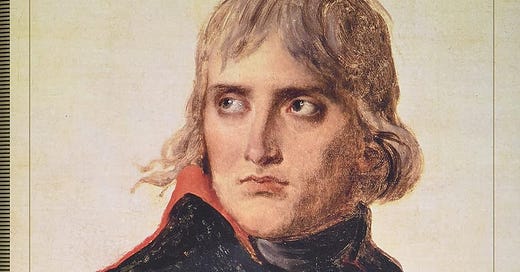Ridley Soctt’s Napoleon was released on November 22nd and as a result Napoleon has been thrust into the discourse. To be honest I have not seen the film, nor do I plan to. After the abomination that was Kingdom of Heaven, I learned to avoid any of Ridely Scott’s ventures into historical film making.
The prevailing chatter surrounding the film revolves l…





